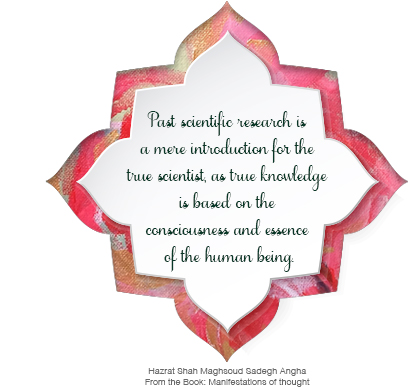Sufism: The Way of the Prophets
"In the realm of the divine, only the secret of the heart is relevant1 ."
What is the essence of the teachings of the Prophets, how is it related to Sufism, and what is its relevance for today? If we look objectively and with sincerity at the lives and teachings of the Holy Prophets, it will be very clear that their lives were devoted to announcing, and sharing with others, their unique discovery. The method through which they had arrived at their discovery was not because of what others had said before them, or because they feared or trusted someone. Instead, they had an innate unquenchable urge to "know" which could not be satisfied except through personal experiences.
For example, the Buddha, after having seen suffering, left his life as a prince and embarked on the path of discovering the cause of suffering and how one could be released from it. He did not stop until he had discovered the answer.
Abraham’s discovery was that one must shatter all idols, so one can know and submit to the one God. It is through this cognition and submission that one can be released of all attachments and desires.
Moses said, by obeying the ten commandments, earthly appetites and impulses are controlled, and one can live in peace and tranquility, which will result in residing with peace and tranquility in the Promised Land.
Jesus said, you must be released of all your acquired earthly traits before you can enter the kingdom of heaven. He called to him a child and said, unless you become like this child, you will never enter the kingdom of heaven.
And, Mohammad gave directives as to how one can cognize one’s true self. He said,
"Whoever cognized his true self has cognized God."
In essence, this is what the message of all Prophets has been through time: Know yourself. Know the "being" who is everlasting and not restricted to the body, to desires, and all the action and reaction that takes place continuously. The Prophets are not addressing the elements that make up the various organs including the brain, the memory and the senses. They are not addressing the behaviors learned through the various socialization processes. They are addressing the "being" who has existed ever since the baby was born, and continued to be constant through out the changes that the child underwent until it reached adulthood. Everything changed –the body, ideas, ideals, thoughts, goals, etc.—but the "being" called "I" always remained constant.
Sufism is a discipline, a method and a way that teaches humans how to discover and unfold their true self, the "I". Know the "being" who is your true identity, the source of your becoming, the source of knowledge, so you may live in peace and balance. Sufism is the method through which the Prophets attained the cognition of God, and their true self.
